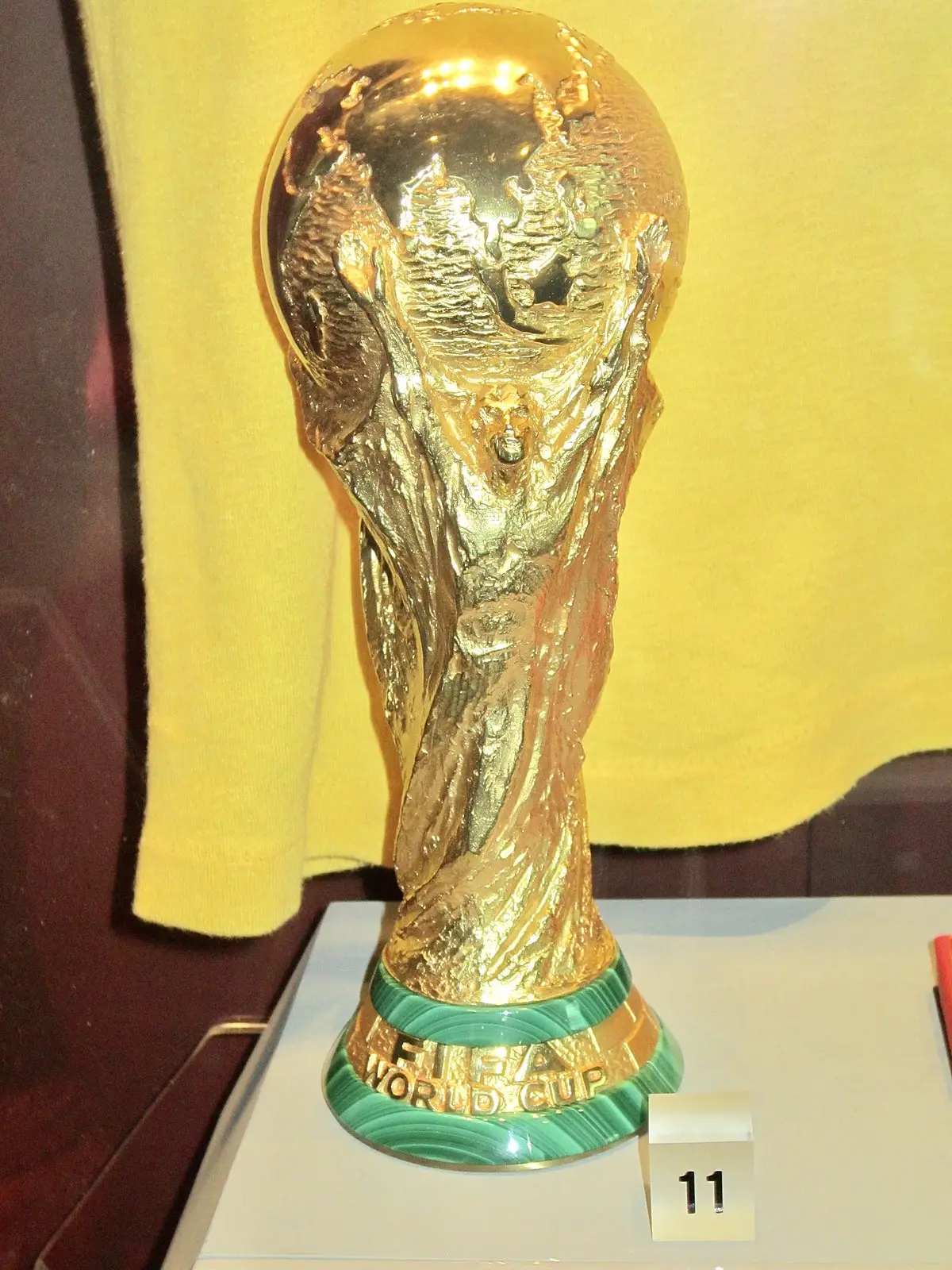The Ultimate Football World Cup Winners List A Comprehensive Guide

Football World Cup Winners List. The FIFA World Cup is undoubtedly one of the most eagerly anticipated and celebrated sporting events in the world. Held every four years, it brings together the best football teams from around the globe to compete for the ultimate prize – the World Cup trophy. Football (or soccer) fans from all corners of the world come together to support their respective teams and witness thrilling matches that often go down in history.
In this blog post, we will take a deep dive into the past, present, and future of the Football World Cup. We will explore the history of this prestigious tournament, list out all the winners from previous editions, delve into some interesting records and notable moments, discuss controversies surrounding the event, and look ahead to upcoming tournaments. So, let’s kick off our journey through the world of the Football World Cup!
History of the Football World Cup
The idea of a global football tournament was first discussed in the early 1900s by Jules Rimet, the president of FIFA at the time. However, due to the outbreak of World War I and II, the plans were put on hold. It was not until 1930, when Uruguay hosted the first-ever FIFA World Cup, that the dream finally became a reality.
Since then, the tournament has been held every four years, with the exception of 1942 and 1946 due to World War II. The number of participating teams has also increased over the years, from 13 in the inaugural edition to 32 in the current format.
List of Past Winners
So who are the proud winners of the Football World Cup? Here’s a comprehensive list of all the teams that have lifted the coveted trophy:
| Year | Host Country | Winner | Runner-up |
|---|---|---|---|
| 1930 | Uruguay | Uruguay | Argentina |
| 1934 | Italy | Italy | Czechoslovakia |
| 1938 | France | Italy | Hungary |
| 1950 | Brazil | Uruguay | Brazil |
| 1954 | Switzerland | West Germany | Hungary |
| 1958 | Sweden | Brazil | Sweden |
| 1962 | Chile | Brazil | Czechoslovakia |
| 1966 | England | England | West Germany |
| 1970 | Mexico | Brazil | Italy |
| 1974 | West Germany | West Germany | Netherlands |
| 1978 | Argentina | Argentina | Netherlands |
| 1982 | Spain | Italy | West Germany |
| 1986 | Mexico | Argentina | West Germany |
| 1990 | Italy | West Germany | Argentina |
| 1994 | United States | Brazil | Italy |
| 1998 | France | France | Brazil |
| 2002 | South Korea Japan | Brazil | Germany |
| 2006 | Germany | Italy | France |
| 2010 | South Africa | Spain | Netherlands |
| 2014 | Brazil | Germany | Argentina |
| 2018 | Russia | France | Croatia |
Note: The 2022 World Cup is scheduled to be held in Qatar.
As evident from the list, Brazil has been the most successful team in the history of the tournament, winning five titles (1958, 1962, 1970, 1994, and 2002). They are closely followed by Italy and Germany with four titles each. The reigning champions, France, have won twice (1998 and 2018).
FIFA World Cup Records
The Football World Cup has seen some remarkable performances over the years, breaking records and setting new ones. Here are a few notable ones:
- Most Goals Scored by a Player: Miroslav Klose (Germany) holds the record for scoring the most number of goals in World Cup history, with 16 goals in 24 matches. He surpassed Brazilian legend Ronaldo’s record of 15 goals in 2014.
- Most Goals Scored by a Team: In 1954, Hungary set the record for the most goals scored by a team in a single tournament, with 27 goals in five matches.
- Youngest Player to Score: In 1958, Pele (Brazil) became the youngest player to score in a World Cup at the age of 17 years and 239 days.
- Oldest Player to Score: In 2014, Faryd Mondragon (Colombia) became the oldest player to score in a World Cup at the age of 43 years and three days.
- Fastest Goal Scored: In 2002, Hakan Sukur (Turkey) scored the fastest goal in World Cup history, just 11 seconds into the match against South Korea.
- Most Consecutive Wins: Brazil holds the record for the most consecutive wins in World Cup history, winning seven straight matches in the 2002 edition.
Notable Moments in World Cup History
The Football World Cup has given us many memorable moments over the years, etched forever in the minds of football fans. Here are some of the most iconic moments from the tournament:
- The “Hand of God” Goal: In the quarter-final game between Argentina and England in 1986, Diego Maradona scored a controversial goal using his hand, which was not seen by the referee. This infamous incident is still talked about today.
- Zinedine Zidane’s Headbutt: In the 2006 final between France and Italy, French star Zinedine Zidane headbutted Italian defender Marco Materazzi in the chest, resulting in a red card for Zidane. This was his last match before retiring from football.
- The Miracle of Bern: In the 1954 final between West Germany and Hungary, the Germans pulled off a shocking upset by defeating the heavily favored Hungarian team, who were unbeaten in four years.
- The “Wink” Incident: In 2006, during the quarter-final game between Portugal and England, Wayne Rooney of England was sent off for stamping on Ricardo Carvalho of Portugal. As he left the field, Cristiano Ronaldo winked at his teammates, leading to speculation that he had influenced the referee’s decision.
Controversies Surrounding the World Cup
The World Cup may be an event celebrated by millions, but it has also been mired in controversies over the years. Here are some of the most talked-about controversies in the tournament’s history:
Corruption Scandals
FIFA, the governing body of world football, has faced numerous allegations of corruption over the years. From accusations of vote-buying to illegal payments, there have been several incidents that have tarnished the reputation of the organization.
In 2015, several high-ranking FIFA officials were indicted by the United States Department of Justice on charges of racketeering, wire fraud, and money laundering. This led to the resignation of FIFA President Sepp Blatter and a major shake-up in the organization.
Political Tensions
With the World Cup being a global event, it is not surprising that political tensions have sometimes crept into the tournament. For example, during the 1978 World Cup held in Argentina, there were widespread protests against the military government’s human rights violations. Similarly, in 2014, there were concerns about hosting the World Cup in Brazil due to widespread political and social unrest in the country at the time.
Racism and Discrimination
Football is known as the “beautiful game,” but it has not been immune to issues of racism and discrimination. In the 2018 World Cup, there were several incidents of racial abuse directed towards players, including French star Kylian Mbappe.
Upcoming World Cup Tournaments
The excitement around the FIFA World Cup never dies down, as football fans eagerly await the next edition of the tournament. Here’s what we know about the upcoming World Cup tournaments:
- 2022 World Cup: As mentioned earlier, the 2022 World Cup will be held in Qatar. This will be the first time that the tournament will be hosted in the Middle East.
- 2026 World Cup: The 2026 World Cup will be co-hosted by Canada, Mexico, and the United States. This will be the first time that three countries will jointly host the tournament.
- 2030 World Cup: The fight to host the 2030 World Cup is still ongoing, with a joint bid from Argentina and Uruguay, as well as a joint bid from Spain, Portugal, and Morocco being considered.
It is also worth mentioning that the 2023 Women’s World Cup will be hosted by Australia and New Zealand, while the inaugural FIFA Club World Cup for women is set to take place in 2021.
Impact of the World Cup on Host Countries
Hosting the World Cup can have both positive and negative impacts on the host country. On one hand, it brings in tourism and boosts the economy, creates job opportunities, and enhances the country’s global image. On the other hand, it can also lead to issues such as displacement of local communities, rising costs, and corruption.
For example, in the 2014 World Cup held in Brazil, there were widespread protests against the government’s spending on building new stadiums, which were seen as a waste of resources instead of being invested in public services.
In contrast, the 2010 World Cup in South Africa was seen as a success by many, with the country showcasing its progress and development to the world. It also brought in a significant economic boost, with over 3 million tourists visiting the country during the tournament.
Evolution of the World Cup Trophy
The original World Cup trophy, the Jules Rimet Trophy, was awarded from 1930 to 1970. However, due to repeated instances of theft and mishandling, a new trophy was introduced in 1974 – the FIFA World Cup Trophy.
The current trophy is made of solid 18-carat gold and weighs around 13 pounds. It depicts two human figures holding up the earth, symbolizing the universality of football. The base of the trophy contains two layers of malachite, a gemstone believed to have healing properties. The names of the winning teams are engraved on the base, with space for future winners until the year 2038.
Future of the Football World Cup
As we look ahead to the future of the Football World Cup, one thing is certain – this tournament will continue to capture the hearts and minds of people all over the world. With advancements in technology and changes in global politics and economics, the World Cup is bound to evolve as well.
One major change that has already been announced is the expansion of the tournament from 32 to 48 teams starting from the 2026 edition. This move has been met with mixed reactions, with some arguing that it will dilute the quality of the competition while others believe it will give more countries the opportunity to participate.
There have also been talks about introducing video assistant referees (VAR) in the World Cup, which has already been implemented in several major leagues around the world. This could potentially reduce controversies and errors in refereeing decisions, but there are concerns about the impact it may have on the flow of the game.
As for the location of future tournaments, there has been a push for more diverse hosting countries, with bids from nations in Africa and Asia. This could open up new opportunities for the growth of football in these regions.
Conclusion
The Football World Cup is more than just a sporting event – it is a cultural phenomenon that brings people together from all over the world. It has given us countless memorable moments and iconic players, breaking records and creating history along the way.
From its humble beginnings in 1930 to its current status as the most watched and celebrated tournament in the world, the World Cup has come a long way. As we eagerly await the next edition in 2022, let us take a moment to appreciate the rich history and impact of this global event. The Football World Cup truly is the ultimate celebration of the beautiful game.










